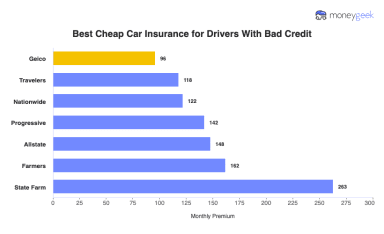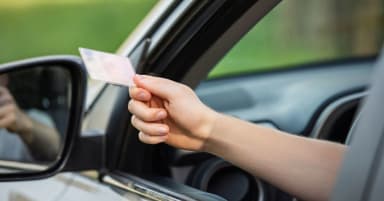American Family offers Washington's cheapest full coverage at $1,168 per year, or $97 a month. PEMCO follows at $1,272 annually, which is $104 more than American Family. Travelers charges $1,283 per year, State Farm is at $1,297 and Farmers is close behind at $1,307.
American Family's rate is 14% lower than Washington's average full coverage cost, saving drivers about $189 a year. The $139 gap between American Family and Farmers is roughly equal to six weeks of American Family's monthly premium.











